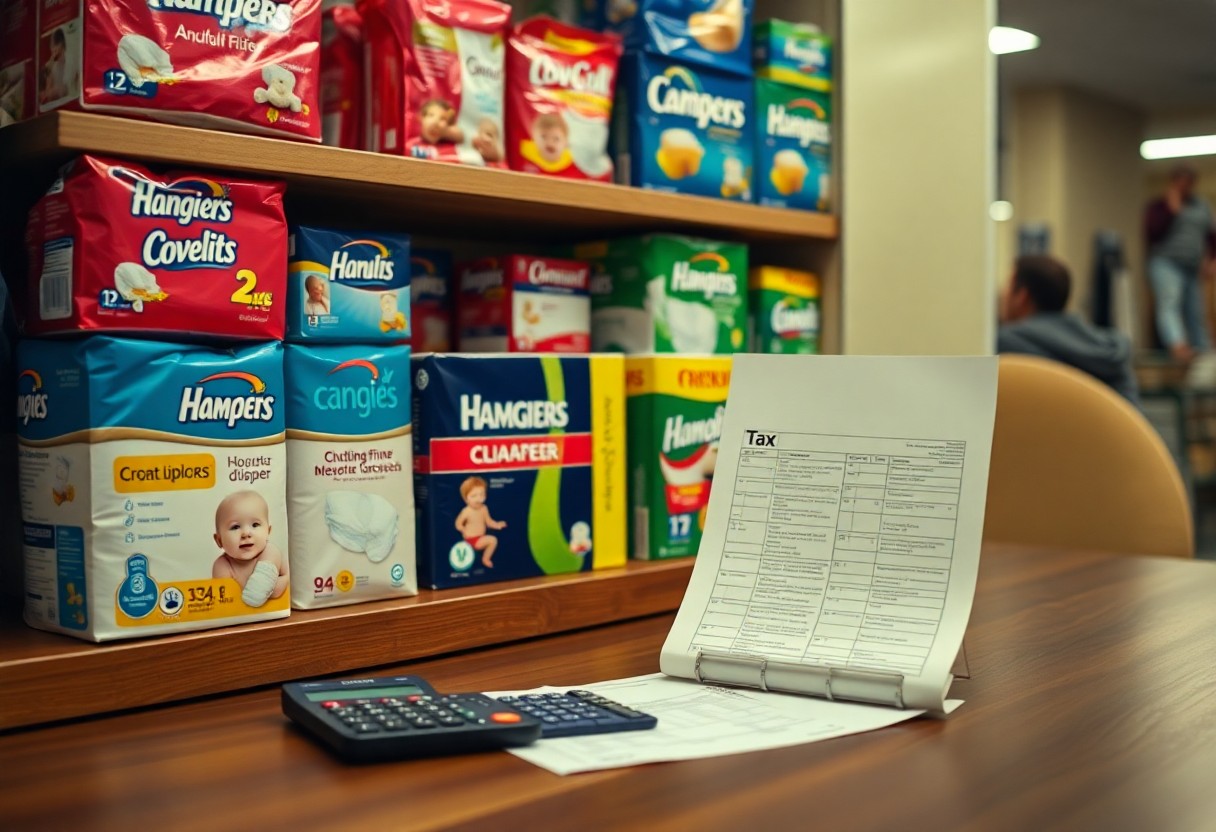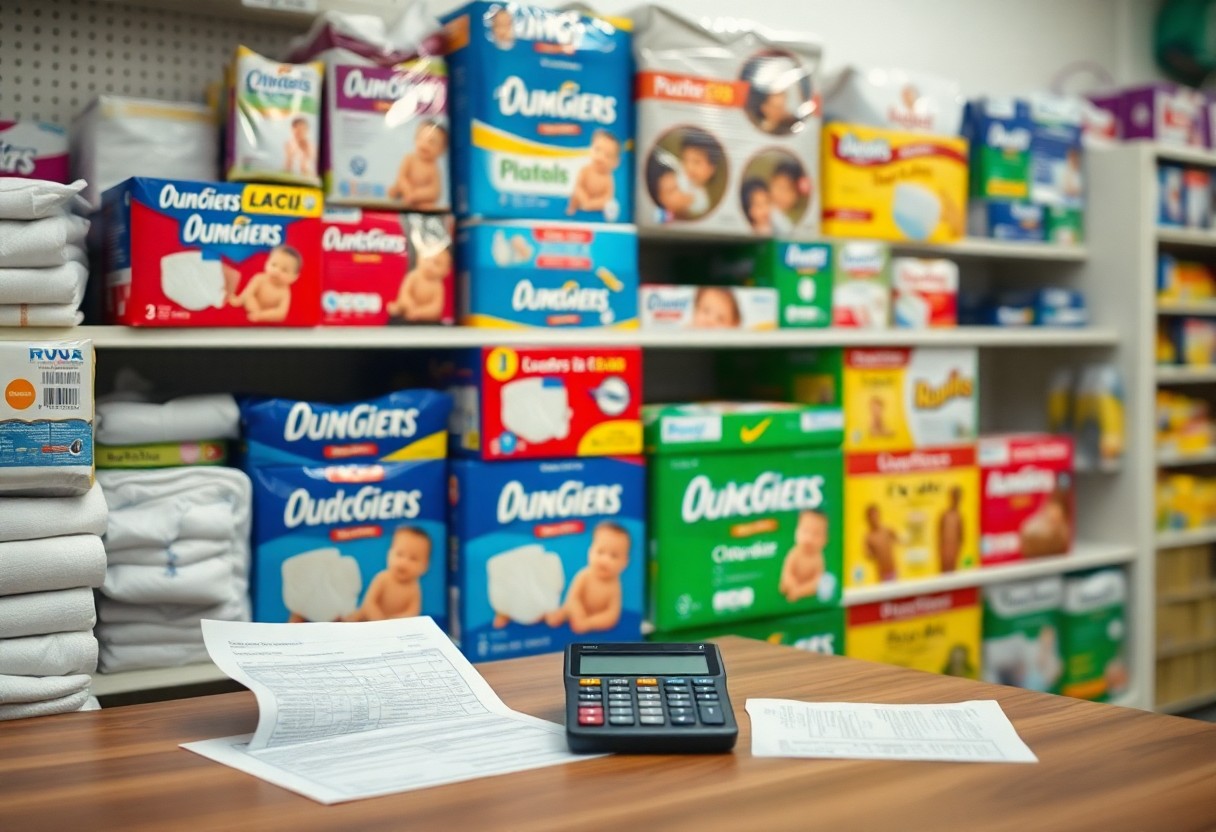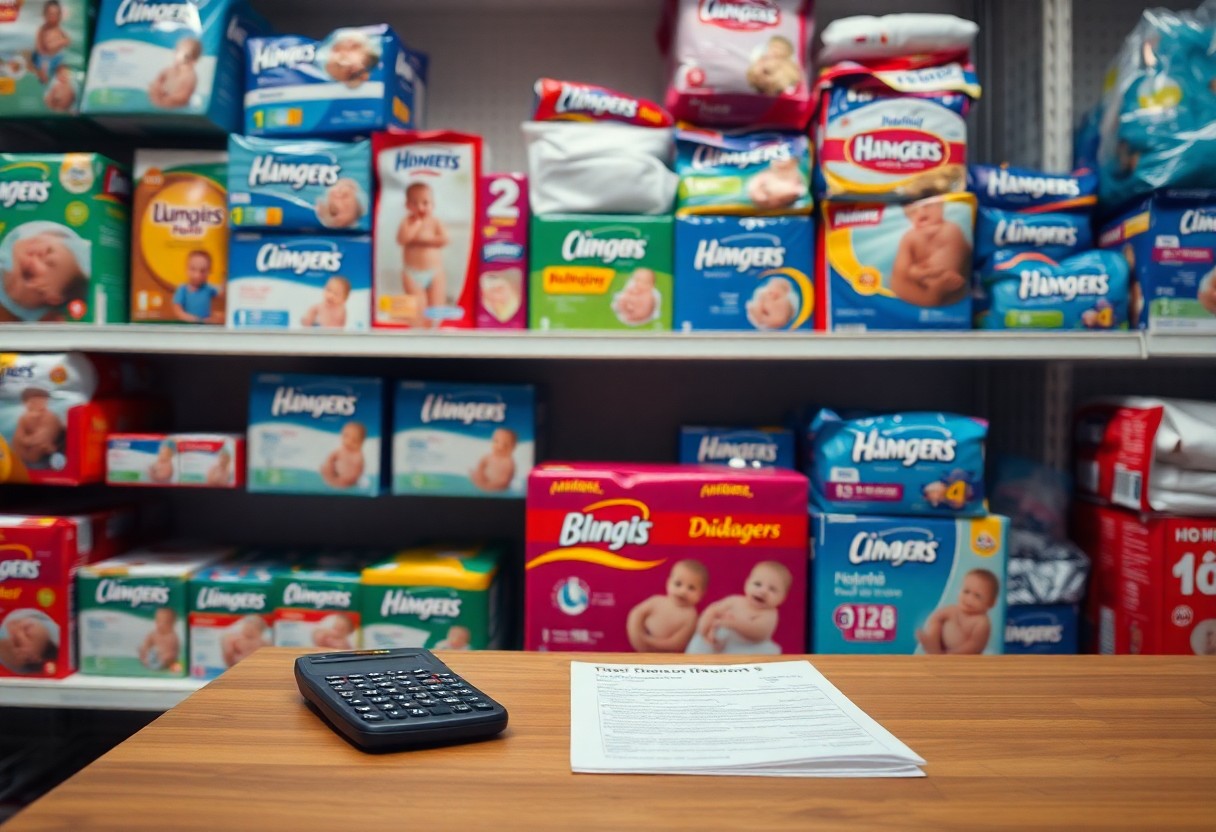Medical Supply Classification
There’s important information you should know about how adult diapers are classified for tax purposes. Your adult diapers can qualify as medical supplies when prescribed by a healthcare provider for a specific medical condition. The IRS typically considers these items as medical expenses when they’re used to alleviate or prevent physical illness. You’ll need to ensure your purchase documentation clearly shows these items are for medical necessity rather than general comfort or convenience.
IRS Guidelines and Thresholds
Now, let’s examine how you can navigate the IRS guidelines for deducting adult diaper expenses. Your medical expenses, including adult diapers, must exceed 7.5% of your adjusted gross income (AGI) to qualify for deduction. When you itemize deductions on Schedule A of Form 1040, you’ll need to calculate your total medical expenses for the year and subtract 7.5% of your AGI to determine your eligible deduction amount.
With proper documentation, you can maximize your potential tax benefits. Your receipts should clearly indicate the purchase of adult diapers, and you should maintain a record of your healthcare provider’s recommendation. If your total qualified medical expenses, including adult diapers, exceed the 7.5% AGI threshold, you can deduct the amount above this threshold. For example, if your AGI is $50,000, your medical expenses would need to exceed $3,750 before you can start deducting them.
Medical Necessity Documentation
Any claim for tax deduction of adult diapers requires proper documentation from your healthcare provider. You’ll need to maintain detailed records, including a letter from your doctor explaining the medical necessity, receipts of purchases, and documentation of your condition. These records should span the entire tax year for which you’re claiming the deduction, and you should keep them for at least three years after filing your taxes.
Specific Qualifying Conditions
Necessity for adult diapers often stems from specific medical conditions that you may be experiencing. These can include neurological disorders, severe arthritis limiting mobility, post-surgical recovery, or conditions affecting bladder or bowel control. Your condition must be diagnosed and documented by a qualified healthcare professional to support your tax deduction claim.
Another important aspect to consider is that the IRS evaluates qualifying conditions based on their impact on your daily activities. You may qualify if your condition significantly affects your ability to perform regular functions without the use of adult diapers. The Social Security Administration reports that approximately 25% of Americans aged 65-74 experience some form of incontinence, which can qualify for medical expense deductions when properly documented.
When preparing your tax documentation, you’ll want to ensure all medical expenses, including adult diapers, are carefully tracked. The IRS allows you to deduct qualified medical expenses that exceed 7.5% of your adjusted gross income. This threshold applies to all your medical expenses combined, not just the cost of adult diapers.
For your HSA or FSA accounts, you can use these pre-tax dollars to purchase adult diapers when they’re medically necessary. These accounts offer immediate tax advantages, as the money you contribute isn’t subject to federal income tax. According to healthcare spending data, Americans spend an average of $1,000 to $1,500 annually on adult incontinence products.
Tax deductions can provide significant financial relief when you’re managing ongoing medical expenses. Studies show that about 13 million Americans deal with incontinence, making this a common concern. Your healthcare provider can help you understand if your condition qualifies for tax-deductible expenses.
The IRS publication 502 outlines specific guidelines for medical expense deductions. You’ll need to itemize your deductions on Schedule A of Form 1040 to claim these expenses. Keep in mind that only expenses not reimbursed by insurance or your employer can be included in your calculations.
Understanding the documentation requirements helps you maximize your potential tax benefits. You should maintain a detailed log of your purchases, including dates, amounts, and the specific products bought. This organization will prove valuable during tax preparation and in case of an audit.

Tax Deduction Strategies
Now that you understand the basics of tax deductions for adult diapers, you can implement specific strategies to maximize your benefits. You’ll need to maintain detailed records of your purchases, including receipts and medical documentation. If your total medical expenses, including adult diapers, exceed 7.5% of your adjusted gross income, you can claim them as itemized deductions on Schedule A of Form 1040. Consider bundling your medical expenses in a single tax year to meet the threshold more easily.
Alternative Savings Programs
Savings opportunities extend beyond traditional tax deductions. You can utilize Flexible Spending Accounts (FSAs) or Health Savings Accounts (HSAs) to pay for adult diapers using pre-tax dollars. With an FSA, you can contribute up to $3,050 (2023 limit) annually, while HSA contribution limits are $3,850 for individuals and $7,750 for families (2023 figures).
A variety of additional programs can help you manage the costs of adult diapers. You might qualify for Medicaid coverage if your income falls within certain limits. Medicare Part B may cover adult diapers if they’re deemed medically necessary and prescribed by your healthcare provider. State-specific programs often provide assistance for medical supplies, including adult diapers. You can also explore manufacturer discount programs, bulk purchasing options, and prescription savings cards that could reduce your out-of-pocket expenses.

Record Keeping
An organized system of documentation is important for your tax deduction claims related to adult diapers. You need to maintain detailed records of all purchases, including receipts, invoices, and proof of payment. Keep a log of medical prescriptions or doctor’s notes that confirm the medical necessity of these items. The IRS may require you to show these documents during an audit, so storing them safely for at least three years after filing your taxes is important.
Professional Consultation
While navigating tax deductions for adult diapers can seem straightforward, you should consider consulting a tax professional or accountant. They can help you understand if your specific situation meets the IRS requirements and guide you through the deduction process. Your tax advisor can also inform you about the latest changes in tax laws that might affect your claims.
Plus, your tax professional can help you explore additional benefits you might be eligible for, such as medical expense deductions or healthcare savings accounts. They can assist you in calculating whether your total medical expenses, including adult diapers, exceed the 7.5% AGI threshold required by the IRS. A professional can also advise you on how to properly document your expenses and maintain records that satisfy IRS requirements.Current Regulations
While your adult diaper expenses may be tax-deductible, you need to meet specific IRS requirements. You can claim these expenses if they exceed 7.5% of your adjusted gross income (AGI) and if you itemize deductions on Schedule A of Form 1040. Your healthcare provider must document that the diapers are medically necessary for treating a specific condition. Keep in mind that you’ll need to maintain detailed records, including receipts and medical documentation, to support your claim.
Future Changes
Future tax regulations may bring changes to how you can deduct adult diaper expenses. The IRS regularly reviews medical expense deductions, and there’s ongoing discussion about lowering the AGI threshold from 7.5% to 5%, which could make it easier for you to qualify for these deductions. You should stay informed about potential changes that could affect your ability to claim these expenses.
Current proposals in Congress suggest expanding the definition of qualified medical expenses to include more incontinence supplies. You might soon have more options for tax-advantaged payments through FSAs and HSAs. The proposed Medical Supply Accessibility Act could allow you to use pre-tax dollars for adult diapers without meeting the AGI threshold. These changes could provide significant savings, as studies show that Americans spend an average of $1,000 to $1,500 annually on adult diapers.
















